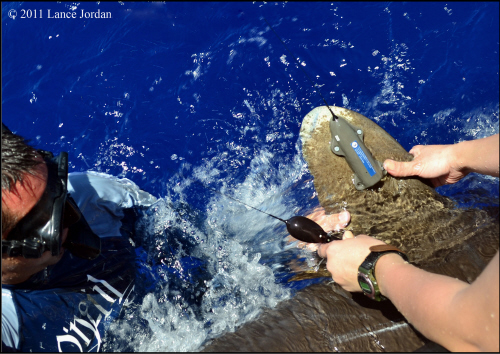
The deep sea is one of the largest, least explored, and most unique ecosystems on the planet. An enormous variety of weird and wonderful creatures make the deep sea their home, including many species of sharks. A new project, headed up by our friends at the Cape Eleuthera Institute, hopes to learn more about these sharks.
According to Edd Brooks, CEI’s shark research and conservation program manager,
“About half of all known species of sharks make this cold, dark high pressure environment their home, and new deep water species are being described all the time. The issue we are currently facing is that basic information about the taxonomy, biology and ecology of these animals is virtually non-existent, yet they are already being harvested by commercial fisheries. The little we do know about deep water species is worrying, in that they are thought to be more sensitive to fishing pressure than all other fish – and look what we have managed to do their more robust shallow water cousins already. The worry is that in some areas, we are already be losing species before they can be described taxonomically.”
Read More “Medusa: Scientists document rarely seen deepwater sharks using baited video cameras” »
